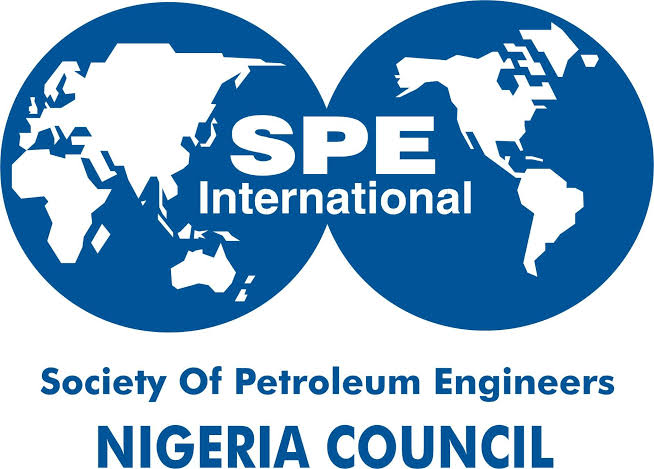
The Nigerian Airspace Management Agency has issued a stern warning to oil and gas companies operating in the country over their ’persistent’ non-payment of the $300 helicopter landing levies, threatening to impose sanctions, including the denial of flight clearances and possible shutdown of non-compliant facilities.
In line with its statutory mandate, the agency notified oil and gas operators of the need for full compliance with the provision of the NAMA Act on the prompt payment of helicopter landing levies for air navigation services rendered by the agency within the Nigerian airspace and cover operations at oil fields, terminals, platforms, rigs, floating Production Storage and Offloading units, helipads, airstrips, and aerodromes.
In a notice issued on Tuesday, the agency stated that it had been engaging operators in the sector since 2022, in collaboration with Naebi Dynamic Concepts Limited, to enforce compliance with the Nigerian Airspace Management Agency Act of 2022.
However, the agency stated that despite several written communications, compliance has remained low due to the influence of some individuals who have worked with them against adhering to established regulatory requirements.
The agency did not name the defaulting oil companies and the individuals egging them to disobey its regulations.
“Since 2022, the Nigerian Airspace Management Agency, in partnership with Naebi Dynamic Concepts Limited, has consistently issued multiple written communications to engage oil and gas operators on the statutory provisions of the NAMA Act. Regrettably, these proactive efforts have not yielded the desired compliance, due to the influence of certain individuals who have worked with them against adherence to established regulatory requirements,” the statement read partly.
NAMA emphasised that enforcing helicopter landing levies aligned with global aviation standards, as is currently practised in other International Civil Aviation Organisation member states across Europe, Asia, and the Americas.
modern air navigation infrastructure, critical for the safe and efficient management of Nigeria’s airspace, particularly given the growing operations of drones, helicopters, and fixed-wing aircraft,” it stated.
According to the NAMA, the agency was exclusively empowered to provide and manage all air navigation services and air traffic control across Nigerian airspace, including for public and private aerodromes, saying Sections 8 and 9 of the NAMA Act prohibited any person or entity other than NAMA from offering such services.
The agency warned that sanctions would be applied to defaulting operators, including “denying or withholding flight clearances to any operator until outstanding charges have been paid by the operator or a security or guarantee has been given to the satisfaction of the Agency for the payment of the charges or fees.”
In more severe cases, particularly involving unauthorised helipads or platforms operating without NAMA clearance, the agency said it would seek ministerial approval to shut down or relocate such facilities, adding “This will be done in line with Section 8(3) of the Act.”
Consequently, NAMA has given affected oil firms a seven-day ultimatum to submit payment plans to Naebi Dynamic Concepts Ltd or face enforcement action.
“As responsible and law-abiding international corporate entities, the Nigerian Airspace Management Agency hereby calls on all affected oil companies to, within seven days from the date of this publication, formally communicate to Naebi Dynamic Concepts Ltd their proposed payment plans and modalities for applicable air navigation levies.
“Failure to comply within the stipulated timeframe will trigger appropriate enforcement measures, including the denial of flight clearances for helicopter operations to oil fields, terminals, platforms, rigs, Floating Production Storage and Offloading units, helipads, airstrips, and aerodromes.
“This action is undertaken not merely to enforce regulatory compliance, but to safeguard national security, enhance aviation safety, promote operational sustainability, and ensure the continued efficiency of Nigeria’s aviation ecosystem, all in alignment with international obligations and globally accepted best practices.”
The PUNCH had earlier reported that the current helicopter landing levy regime has been a contentious issue in the oil and aviation sectors.
The $300-per-landing charge was first introduced in 2024, sparking outrage from helicopter operators, particularly those servicing the oil and gas sector.
The PUNCH previously reported that the levy had been suspended following industry pushback, with stakeholders alleging that the charges were arbitrary and imposed without adequate consultation.
A memo dated May 15, 2025, from NAMA directed that Naebi Dynamic Concepts should “immediately resume” the collection of the helicopter landing fees.
Despite criticisms from industry groups, NAMA insists the levies are necessary to offset the high cost of maintaining Nigeria’s air navigation systems, especially at remote helipads, rigs, floating production units, and offshore platforms where helicopter movements have increased.
With this new enforcement notice, the long-running regulatory standoff appears to be entering a more confrontational phase, and oil operators may now be forced to comply—or risk grounding their helicopter operations.
Experts said this could affect oil production if oil workers fail to get flight clearance to their oil fields.
SOURCE; PUNCH





After all, what a great site and informative posts, I will upload inbound link – bookmark this web site? Regards, Reader.